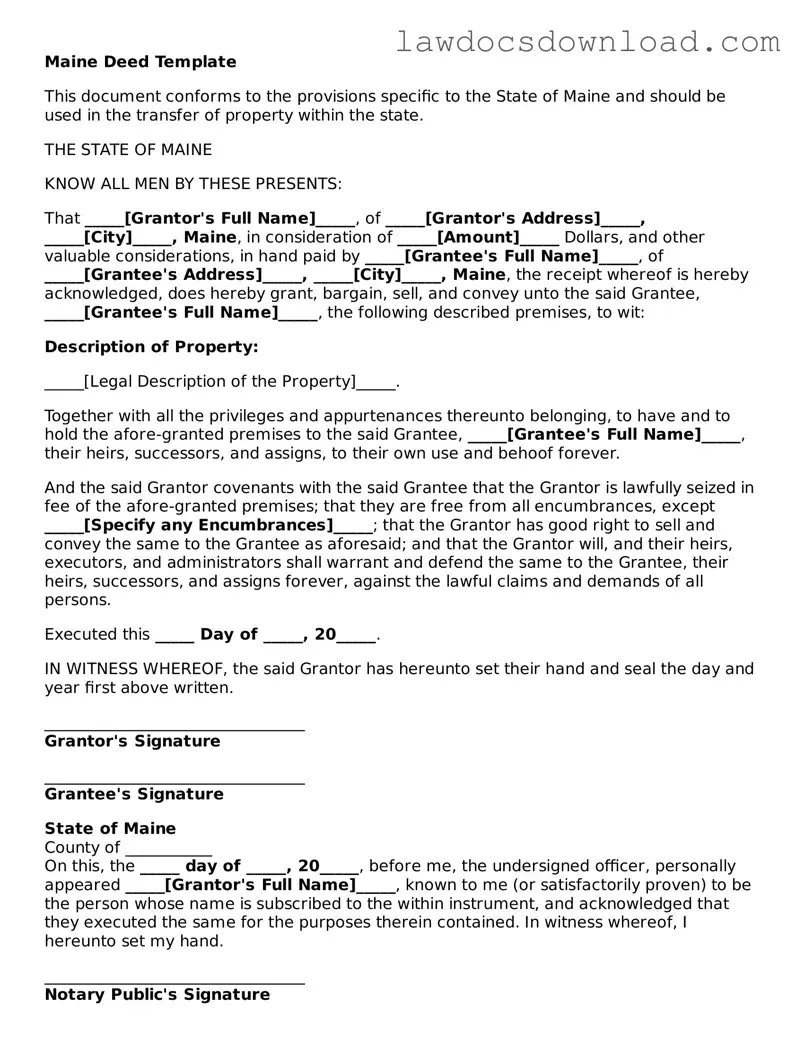Maine Deed Template
This document conforms to the provisions specific to the State of Maine and should be used in the transfer of property within the state.
THE STATE OF MAINE
KNOW ALL MEN BY THESE PRESENTS:
That _____[Grantor's Full Name]_____, of _____[Grantor's Address]_____, _____[City]_____, Maine, in consideration of _____[Amount]_____ Dollars, and other valuable considerations, in hand paid by _____[Grantee's Full Name]_____, of _____[Grantee's Address]_____, _____[City]_____, Maine, the receipt whereof is hereby acknowledged, does hereby grant, bargain, sell, and convey unto the said Grantee, _____[Grantee's Full Name]_____, the following described premises, to wit:
Description of Property:
_____[Legal Description of the Property]_____.
Together with all the privileges and appurtenances thereunto belonging, to have and to hold the afore-granted premises to the said Grantee, _____[Grantee's Full Name]_____, their heirs, successors, and assigns, to their own use and behoof forever.
And the said Grantor covenants with the said Grantee that the Grantor is lawfully seized in fee of the afore-granted premises; that they are free from all encumbrances, except _____[Specify any Encumbrances]_____; that the Grantor has good right to sell and convey the same to the Grantee as aforesaid; and that the Grantor will, and their heirs, executors, and administrators shall warrant and defend the same to the Grantee, their heirs, successors, and assigns forever, against the lawful claims and demands of all persons.
Executed this _____ Day of _____, 20_____.
IN WITNESS WHEREOF, the said Grantor has hereunto set their hand and seal the day and year first above written.
_________________________________
Grantor's Signature
_________________________________
Grantee's Signature
State of Maine
County of ___________
On this, the _____ day of _____, 20_____, before me, the undersigned officer, personally appeared _____[Grantor's Full Name]_____, known to me (or satisfactorily proven) to be the person whose name is subscribed to the within instrument, and acknowledged that they executed the same for the purposes therein contained. In witness whereof, I hereunto set my hand.
_________________________________
Notary Public's Signature
My Commission Expires: _____

